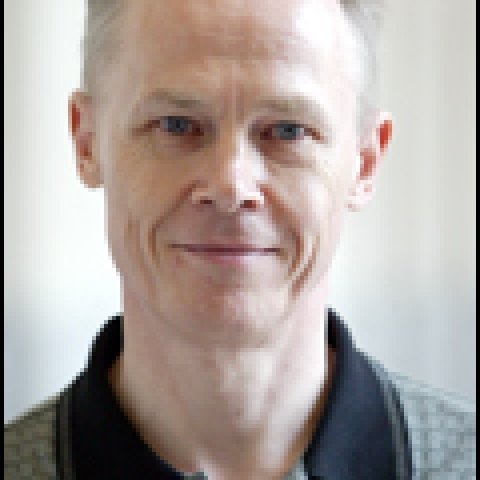Constantin Fasolt
Former Fellow
Professional Affiliation
Professor of History, The University of Chicago
Expert Bio
I was born and raised in Germany in the aftermath of World War II. In the nineteenth century, Germany was widely admired for its great achievements in the arts and sciences. But in the middle of the twentieth century the country found itself defeated, occupied, divided, in ruins, and guilty of unspeakable crimes. No other European nation descended from such heights to such depths. How did that happen?I did not know it as I was growing up, but that question is one of the two main factors that have shaped my intellectual life. The other is a family history with roots outside of Germany, in Ireland and England on my mother's side, and Russia on my father's side. Though I was raised in Germany, I was never able to think of myself as more than half German. Perhaps it is only natural that, following on the trail of some of my Russian relatives, I should have emigrated to the United States in my twenties and now find myself writing a book seeking to grasp the meaning of events in the past that have made the European understanding of liberty so different from that which I encountered in the United States. I finished school in 1969, served in the German army for two years, and studied philosophy at the Universities of Bonn and Heidelberg. Disappointed by what seemed to me the failure of philosophers to address the questions uppermost in my mind, I left Germany and studied history at Columbia University. I focused on the Middle Ages because I was convinced that our condition is shaped by patterns far too deeply rooted in the European past to reveal themselves from a perspective limited to one or two centuries. I obtained my Ph.D. in 1981 and enjoyed a post-doctoral appointment at the Columbia University Society of Fellows from 1981-83. Since then I have been on the faculty of The University of Chicago. I spent the first years of my academic life examining the end of the medieval world. The result was a book about the so-called conciliar movement, the last and greatest attempt to rescue medieval civilization from the collapse it suffered in Renaissance, Reformation, and the Age of Religious Wars. That book, Council and Hierarchy, was published in 1991. Since then I have concentrated on the new order that was built over the ruins of the medieval world. That order is commonly identified with sovereign nation states, the separation of church and state, a belief in natural rights and individual autonomy, and modern science and technology. But it also rests on a new understanding of the relationship between the present and the past. That is the subject of my second book, The Limits of History, which will be published in the fall of 2003.Having spent the last 20 years trying to understand the basic features of modern Europe against a deep historical background, I am satisfied that I know the subject just about as well as I ever will. My plan is to write a short book distilling what I have learned into a few elementary lessons. The most important is that the modern European idea of liberty is limited by very deeply rooted fears. I will seek to identify the nature of those fears, the forms in which they have endured, and the different ways in which they manifest themselves on the two sides of the Atlantic.
Education
Ph.D. (1981) History, with distinction, Columbia University; M.Phil.(1978) History, Columbia University; M.A. (1976) History, Columbia University; Abitur (1969) Beethoven-Gymnasium, Bonn
Subjects
European History,Germany
Experience
- Visiting Professor of History, University of Notre Dame, 2002-03
- Visiting Professor of History, University of Virginia, 1999-2000
- Professor of History, University of Chicago, 1999-present
- Associate Professor of History, University of Chicago, 1990-98
Assistant Professor of History, University of Chicago, 1983-90 - Lecturer in History, Columbia University, 1981-83
- Preceptor in History, Columbia University, 1979-81
Expertise
History of medieval and early modern Europe; the conciliar movement; the Protestant Reformation; history of European legal, social, and political thought; history of Germany; state and church; universal empire; sovereignty, autonomy, and conscience; philosophy of history
Wilson Center Project
"States of Shock: Liberty and Fear of Barbarism in European History"
Project Summary
The modern European and, by implication, American understanding of liberty needs to be seen against a deep historical background of repeated shocks to European self-confidence. Liberty thus understood embodies not only faith in individual autonomy, but also fear of the unknown in self and other. That fear found its most durable expression in doctrines of property and sovereignty—of the individual over itself and the state over its subjects—with which liberty has been identified since the Age of Religious Wars came to an end. If liberty is to withstand the challenges confronting it today, the fear enshrined in our ideas of property and sovereignty needs to be brought to consciousness. The purpose of my project is to do just that.
Major Publications
- The Limits of History (University of Chicago Press, 2003)
- Council and Hierarchy: The Political Thought of William Durant the Younger (Cambridge University Press, 1991)
- "Europäische Geschichte, zweiter Akt: Die Reformatio," Die deutsche Reformation zwischen Spätmittelalter und Früher Neuzeit (R. Oldenbourg, 2001)
- "Visions of Order in the Canonists and Civilians," Handbook of European History, 1400-1600: Late Middle Ages, Renaissance and Reformation (Brill, 1995)
